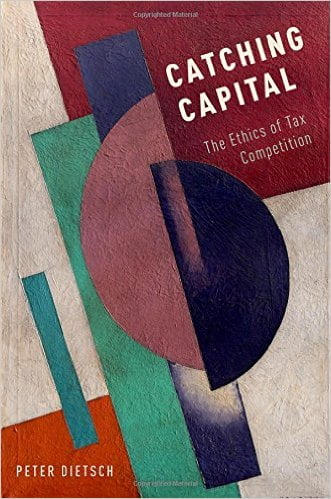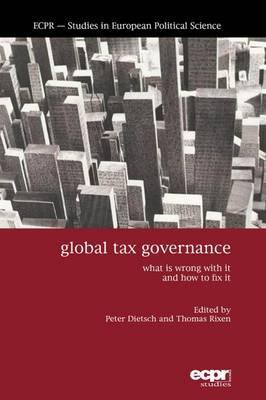
La justice fiscale
Une émission de la série « Objets trouvés », réalisée par Martin Blanchard et produite par Radio-CRÉ avec l’aide du Fonds de recherche sur la société et la culture (FQRSC).
Avec les voix de : Peter Dietsch (Université de Montréal) et Lyne Latulippe (Université de Sherbrooke).
Et un concert de sons, glanés sur les sites web suivants (dans leur ordre d’apparition) :
www.aporee.org
Peter Cusack, « Beijing traffic lights sounds »
OR poiesis « crowded tokyo trains and their silence / ginza metro line, tokyo »
jeanyves.leloup6@gmail.com, « Columbia Road Flower Market / Tower Hamlets, UK »
Natalia Beylis, « The Sunken Hum Broadcast 76 – St-Patrick’s in Galway / Galway, Ireland »
www.freesound.org
soundlandscapes, « barrel-organ-jardin-du-luxembourg »
www.aporee.org
arckibuz@gmail.com, « Radio cops at the corner »
john grzinich, « Georgian musicians at the gate / Boryspil, Ukraine »
tintamar, « Trumpets Accordion Bessame Mucho / Luxemburg »
a.bronofski@gmail.com, « Singin ATM / Sheffield, UK »
udo noll, « Ave Maria played on saw / Berlin »
jules@texthouse.net, « River Song – Kirsty Law, Clerk Saunders / Melrose, Scottish Borders, UK »
Emeka Ogboh, « Jammin in Lagos. Live music Bogobiri House »
Vous trouverez également ici les enregistrements audios de la table ronde « Quo Vadis, Revenu Québec? Débat sur le rapport Godbout » qui a lieu au Bistro Olivieri, le 8 avril 2015.
QUELQUES LECTURES PERTINENTES :
1) Peter Dietsch
Catching Capital – The Ethics of Tax Competition
Oxford University Press, 2015
Rich people stash away trillions of dollars in tax havens like Switzerland, the Cayman Islands, or Singapore. Multinational corporations shift their profits to low-tax jurisdictions like Ireland or Panama to avoid paying tax. Recent stories in the media about Apple, Google, Starbucks, and Fiat are just the tip of the iceberg. There is hardly any multinational today that respects not just the letter but also the spirit of tax laws. All this becomes possible due to tax competition, with countries strategically designing fiscal policy to attract capital from abroad. The loopholes in national tax regimes that tax competition generates and exploits draw into question political economic life as we presently know it. They undermine the fiscal autonomy of political communities and contribute to rising inequalities in income and wealth.
Building on a careful analysis of the ethical challenges raised by a world of tax competition, this book puts forward a normative and institutional framework to regulate the practice. In short, individuals and corporations should pay tax in the jurisdictions of which they are members, where this membership can come in degrees. Moreover, the strategic tax setting of states should be limited in important ways. An International Tax Organisation (ITO) should be created to enforce the principles of tax justice.
The author defends this call for reform against two important objections. First, Dietsch refutes the suggestion that regulating tax competition is inefficient. Second, he argues that regulation of this sort, rather than representing a constraint on national sovereignty, in fact turns out to be a requirement of sovereignty in a global economy. The book closes with a series of reflections on the obligations that the beneficiaries of tax competition have towards the losers both prior to any institutional reform as well as in its aftermath.
2) Peter Dietsch & Thomas Rixen (eds.)
Global Tax Governance – What is Wrong With It and How to Fix It
ECPR Press, 2016
Commercial banks UBS and HSBC embroiled in scandals that in some cases exposed lawmakers themselves as tax evaders… multinationals Google and Apple using the Double Irish and other tax avoidance strategies… governments granting fiscal sweetheart deals behind closed doors (as in Luxembourg)… the stream of news items documenting the crisis of global tax governance is not about to dry up.
Much work has been done in individual disciplines on the phenomenon of tax competition that lies at the heart of this crisis. Yet, the combination of issues of democratic legitimacy, social justice, economic efficiency, and national sovereignty that tax competition raises clearly requires an interdisciplinary analysis.
This book offers a rare example of this kind of work, bringing together experts from political science, philosophy, law, and economics whose contributions combine empirical analysis with normative and institutional proposals. It makes an important contribution to reforming international taxation.
3) Peter Dietsch & Thomas Rixen
“Tax Competition and Global Background Justice”
Journal of Political Philosophy 22/2 (2014), 150-77
http://onlinelibrary.wiley.
![]()
Les produits sont protégés par une licence Attribution 4.0 International (CC BY 4.0).
Pour plus de détails sur cette licence, veuillez vous référer à l’adresse suivante.
Products are protected by a Attribution 4.0 International licence (CC BY 4.0).
For more details on this licence, please refer to the following address.





